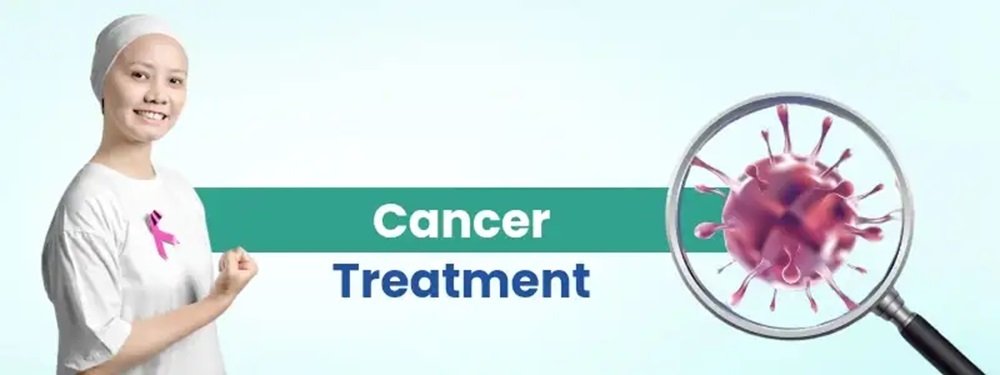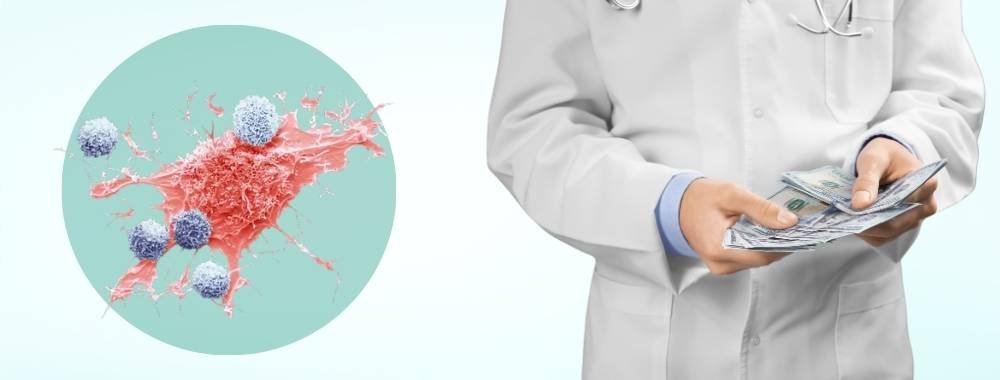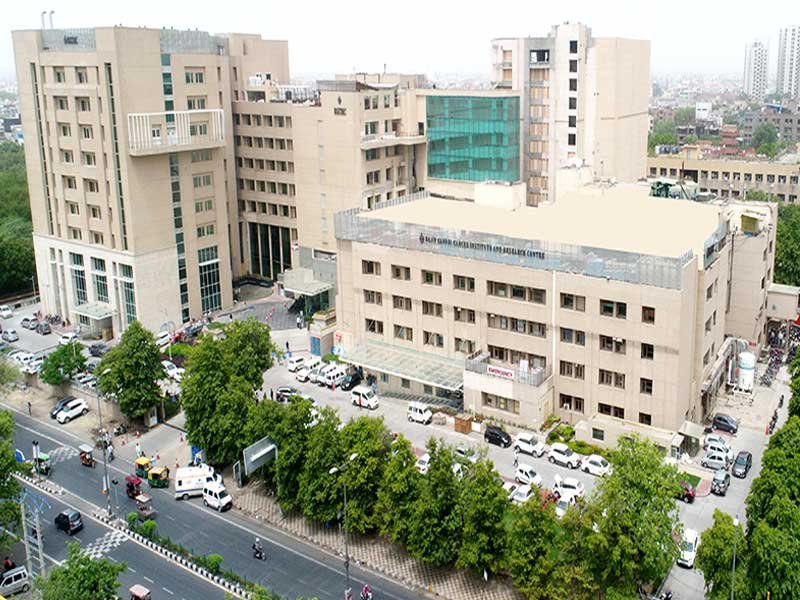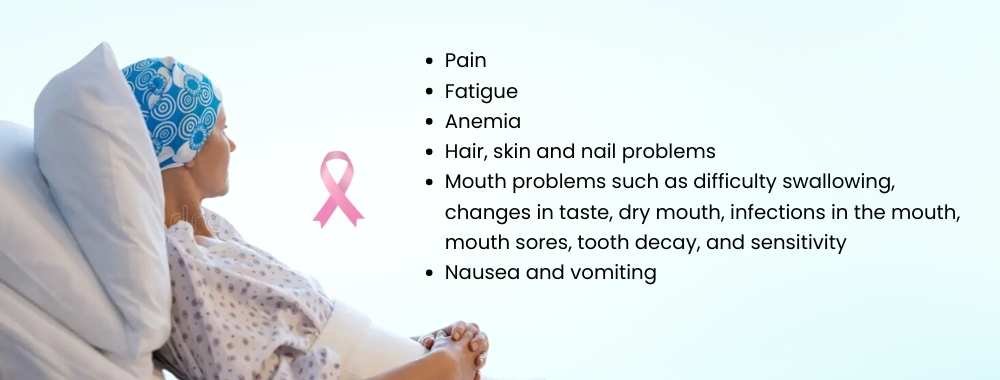Cancer treatment in India is the right option for international patients due to its quality care at the lowest cost.
Recovery Time
4-6 Weeks
Success Rate
90- 95%
Hospital Stay
2 Days
Treatment Type
Treatment
Home Treatments Oncology Cancer Treatment
Are you looking for an affordable option for cancer treatment?
The cancer treatment cost in India is cost-effective as compared to Western countries which makes it a preferred choice for international patients.
Rising healthcare expenses make cancer treatment overwhelming and patients often experience limited options and high costs.
India offers quality care and advanced cancer treatment at a fraction of the cost which combines world-class medical technology with skilled oncologists.

Cancer treatment is necessary to extend the lives of patients and help them live as symptom-free as possible. Treatments like surgery, radiation, medication, and other therapies work to either shrink or control the cancer cells.
Several types of cancer treatments exist, and your treatment plan will depend on the type of cancer and your situation. Common treatments include:
The cost of cancer treatment is cost-effective as compared to other Western countries, yet the cost includes hospital charges, surgeons, fees, diagnostic tests, overall surgical costs, and so on. Here is an overview of information about the cost breakdown:
Cost Component | Details | Estimated Cost in USD |
Pre-operative Consultation & Diagnosis | Consultations, X-rays, MRI scans, blood tests | 1200 USD |
Surgery Costs | Includes surgeon fees, type of surgery, and hospital stay | 2500-3000 USD |
Rehabilitation and Follow-up | Physiotherapy sessions, medications, supportive devices, follow-up visits |
Patients with a higher risk of cancer may need a cancer screening or diagnostic workup, including those with:
There are several ways to treat or cure cancer cells, including:

Fill in your details and we'll get back to you soonGet Free Treatment Quote
Country | Cost Structure |
India | 2500-3000 USD |
United States | 40000-100000 USD |
Germany | 10000-23000 USD |
Turkey | 8000-20000 USD |
◾ Key Takeaways
✅ Affordable Treatment Cost: India offers a cost-effective option for patients seeking cancer treatment in India. Patients will receive consultation with the best oncologists, and accredited hospitals that match the international medical standards.
✅ Advanced Medical Technology: Indian hospitals are equipped with some of the latest technologies for cancer treatment to provide quality care comparable to Western medical standards at an affordable cost.
Cancer Treatment cost
Treatment Name
Estimated Cost
Cancer Treatment 2500-3000 USD
India is known for its high-quality care for cancer patients, offering comprehensive and advanced treatment options at a fraction of the cost compared to Western countries. Here’s why India is a preferred destination for cancer treatment:
Doctors in India are highly skilled and internationally trained in treating cancer and these doctors are dedicated to providing quality care for patients seeking cancer treatment in India.
Beds: 539
New Delhi
Beds: 230
New Delhi
Beds: 710
New Delhi
Beds: 650
New Delhi
Beds: 191
New Delhi
Beds: 310
New Delhi
Beds: 299
Gurugram
Beds: 380
New Delhi
Beds: 402
New Delhi
Beds: 1300+
Gurugram
Beds: 1000
New Delhi
Beds: 500
New Delhi
Beds: 450
Faridabad
Beds: 675
New Delhi
Beds: 500
New Delhi

Max Super Speciality Hospital, Saket

Aakash Healthcare Super Speciality Hospital

Indraprastha Apollo Hospital

BLK Max Super Speciality Hospital

Dharamshila Narayana Superspeciality Hospital

Fortis Escorts Heart Institute

Fortis Memorial Research Institute

Manipal Hospital Dwarka

Max Super Speciality Hospital Shalimar Bagh

Medanta - The Medicity Hospital

Moolchand Kharaiti Ram Hospital

Rajiv Gandhi Cancer Institute and Research Centre

Sarvodaya Hospital

Sir Ganga Ram Hospital

Venkateshwar Hospital
Indian hospitals are equipped with the latest technology and accredited by international organizations such as JCI AND NABH to ensure they meet international medical standards.
India has significantly improved cancer treatment technologies by using cutting-edge methods to enhance patient care.
Doctors may use these approaches to diagnose cancer, such as:
🟢Do’s Before Surgery
✅ Follow Doctor's Instructions: Carefully follow all instructions given by your doctor, including medication schedules, dietary restrictions, and other recommendations.
✅ Stay Hydrated: Drink plenty of water in the days leading up to your treatment to keep your body well-hydrated.
✅ Eat Nutritious Meals: Focus on healthy, balanced meals to prepare your body for treatment and help it recover more effectively.
🔴Don’ts Before Surgery
❌ Don’t Consume Alcohol: Avoid alcohol before treatment, as it can interfere with medications and impact your body’s ability to recover.
❌ Don’t Smoke: Smoking can weaken your immune system and slow recovery. It’s best to quit or, at the very least, avoid smoking before treatment.
❌ Don’t Hide Any Allergies or Symptoms: If you have any allergies or health issues, be open with your healthcare provider so they can tailor your treatment to your needs.
Before Surgery
During Surgery
After Surgery
Fill in your details and we'll get back to you soonGet Free Treatment Quote
The length of a hospital stay depends on the type of surgery; however, patients are generally discharged around two days after surgery.
Recovery time varies based on factors such as the type and stage of cancer. More complex surgeries or advanced stages may require a longer recovery period.
The success rate of cancer treatment ranges between 90% and 95%, though this depends on the cancer type, stage, and overall health of the patient.

There are some common side effects of cancer treatment include:
Here are some other side effects of cancer treatment include:
If the side effects of your cancer treatment are disrupting your daily routine, it’s important to see your doctor and discuss them. For certain complications, your doctor may recommend treatments to help manage these side effects, such as:
Why Choose Mejocare for Cancer Treatment in India?
✅ Team of Top Oncologists: We recommend you doctors have more than 20 years of experience in various cancer treatments such as breast cancer, lung cancer, lymphoma, anal cancer, etc.
✅ JCI/NABH Accredited Hospitals: We have also partnered with hospitals that have State-of-the-art Facilities that are equipped with the latest technologies such as robotics, machine learning, and cutting-edge diagnostic and therapeutic equipment, designed to offer you comprehensive and personalized care.
✅ Other Benefits: We provide, swift and detailed responses, accurate cost estimates, help with obtaining medical visas, accommodation in India, and priority appointment scheduling with the doctors. Moreover, we also facilitate your smooth arrival in India, with airport pickup, drop at the hotel, hospitalization assistance, and much more.
Cancer treatment is a procedure to cure or treat cancer cells in the body and diagnose cancer symptoms. Patients undergo several tests to help doctors diagnose their condition. After analyzing the condition, doctors perform the treatment. This will help to treat cancer, and there are several ways to treat cancer cells. Surgeons use these techniques not to let the cancer cells grow, such as surgery, chemotherapy, radiation therapy, bone marrow transplant, immunotherapy, etc.

Medically Reviewed By
Dr. Aryan Malhotra is a highly respected and compassionate medical professional with a strong academic background. He holds an MBBS and MD degree from DTMU University in Georgia. Driven by a deep sense of duty, he is dedicated to providing exceptional care to his patients.
Our care team can help you.
